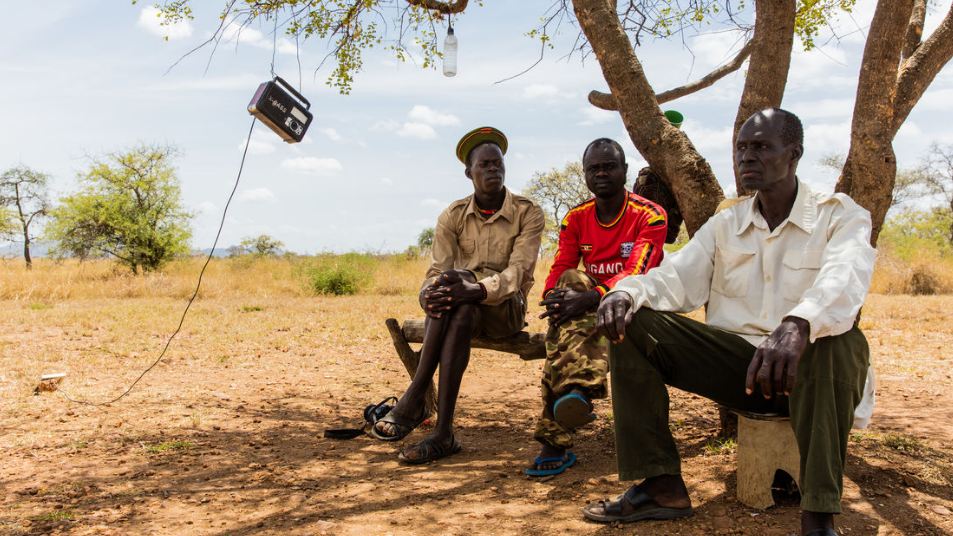After booking and confirming your Uganda safari, you will likely experience a surge of emotions, ranging from the excitement of anticipating a new adventure and, perhaps, a bit of anxiety about possible health concerns (often fueled by friends or family who has never traveled to Africa).
The good news is, with sound medical advice from your doctor or travel clinic specialist and up-to-date vaccinations; youÔÇÖre very unlikely to have any serious health concerns on a safari in Uganda.
Please Note: We are Uganda safari experts, not medical specialists. We advise you to visit your doctor well in advance of your Uganda safari adventure to discuss any health concerns you might have.
The COVID-19 Vaccine & Travel to Uganda
With travel restrictions and COVID-19 protocols easing by the minute, you no longer need a Covid-19 Vaccination or PCR test certificate to enter or exit Uganda (since March 7, 2023).
However, some commercial airlines that fly to and within Uganda may require that passengers produce a negative COVID-19 PCR test that has been conducted within 72 hours of their departure. Please ensure you are acquainted with the COVID-19 protocols of the airline you are traveling with.
Find out more about:
- How to travel safely in Uganda
- The best places to visit in Uganda
- The top places to stay in Uganda
- And visa requirements for Uganda
Routine Vaccinations
Some diseases that have been made rare in your home country due to routine vaccinations may be far more common in the developing world. Therefore, you are advised to visit your health care provider 4 to 6 weeks before you travel to Uganda to ensure that you are up to date with the following routine vaccinations:
- Hepatitis A & B
- Flu
- DPT ÔÇô diphtheria, pertussis (whooping cough), and tetanus
- Polio
- MMR ÔÇô measles, mumps, and rubella (German measles)
Important: It is crucial that you be in optimal health if you are trekking gorillas in Uganda, as they are hyper-vulnerable to human diseases. A common human cold can kill a whole family of endangered mountain gorillas. So, youÔÇÖll not be allowed to join the gorilla trek if you have even the slightest symptoms of illness.
Yellow Fever
The yellow lever is endemic in tropical areas of Africa and South America. ItÔÇÖs an acute viral hemorrhagic disease spread by the bite of infected female mosquitoes. The ÔÇÿyellowÔÇÖ in the name refers to jaundice that affects some patients. Symptoms of yellow fever include headaches, muscle pain, jaundice, nausea, vomiting, and fatigue.
Yellow Fever Vaccination
Yellow fever is easily prevented with a simple and highly effective vaccination thatÔÇÖs routinely available from travel clinics. And you must have the Yellow Fever Vaccination at least 10 days before you plan on entering Uganda. This is because it takes a few days before you are effectively protected and you may experience flu-like symptoms, which are unpleasant on a long-haul flight.
Once youÔÇÖve had the shot, the travel clinic will issue you with an International Certificate of Vaccination or Prophylaxis (IVCP) that proves you have been inoculated. The World Health Organization (WHO) states that just one dose of the vaccine will provide life-long protection.
Booster doses and new vaccination certificates used to be recommended every ten years for people who continued to be at risk of the infection, but this is no longer necessary in most cases.
The vaccine provides effective immunity within ten days for 80-100% of people vaccinated, and within 30 days for more than 99% of people vaccinatedÔÇØ, WHO says. However, the vaccination is not recommended to the following individuals:
- Children below 9 months of age;
- Pregnant woman;
- People with severe allergies to egg protein;
- And people with cancer or compromised immune systems (due to symptomatic HIV/AIDS or other causes), or who have a disorder with their thymus gland.
Rare Cases Of Serious Yellow Fever Vaccination Side-Effects
According to WHO, there have been rare reports of severe side effects from the yellow Fever vaccine. These severe ÔÇ£Adverse Events Following ImmunizationÔÇØ (AEFI) provoke an attack on the liver, the kidneys, or the nervous system. The risk of AEFI is higher for people over 60 years of age and anyone with weakened immune systems due to symptomatic HIV/AIDS or other causes, or who have a thymus disorder. However, the risk of these severe side effects is low, occurring about one in every 100,000 doses of vaccine recipients.
Important: Only a travel clinic can issue a yellow fever vaccination certificate.
Malaria Risk
Malaria is a mosquito-transmitted infectious disease caused by parasites belonging to the Plasmodium genus. The Female Anopheles mosquito transmits these single-celled organisms into the human bloodstream where they begin their full life and reproductive cycle, first in the liver and later in the red blood cells.
ÔÇÿUncomplicatedÔÇÖ malaria symptoms include high fever, headaches, body aches, nausea, diarrhea (though not always), and a feeling of extreme fatigue, but ÔÇÿsevereÔÇÖ or ÔÇÿcomplicatedÔÇÖ cases can result in coma, seizures, and death. Malaria is present in the majority of African countries including Uganda, but its geographic distribution is complicated by several different factors. The highest-risk areas tend to be around the equator, as warm and humid temperatures in high-rainfall areas favor transmission.
As per the Centre for Disease Control, malaria transmission does not occur at very high altitudes, in deserts away from oases, and in areas where eradication programs have successfully eliminated the risk.
In temperatures below 2OC, the parasite cannot complete the necessary growth cycle in the mosquito before transmission. Every year, the Malaria Atlas Project works in conjunction with WHO to produce the World Malaria Report with the necessary, updated information about the distribution of malaria and where outbreaks could be anticipated. An Up-to-date and iterative map can be found here.
Malaria Prevention Measures
Although the implications of being infected with malaria can be severe, the likelihood of tourists in Uganda being infected is extremely low if good advice from travel experts is followed, and simple precautions are taken.
1. Avoid being bitten by Mosquitoes
It is impossible to avoid every single mosquito bite, no matter how diligent you are, but there are a few tips to avoid being bitten wherever possible:
- Use insect repellent on any exposed skin every time you shower
- Cover legs and arms with long-sleeved shirts and trousers, particularly at night;
- Keeping your tent or room doors closed
- Sleep under a mosquito net in an air-conditioned or ÔÇÿwell-screened room and, if possible, sleep with a fan on;
- Avoid standing water that may breed mosquitoes
- Using quality citronella soap.
2. Preventative Prophylactics
Due to the complexity of the malarial plasmid life cycle, there is no widely available or effective vaccine available against malaria, though there are vaccines at differing stages of clinical development and trial.
There are several prophylaxis medications available, and many different factors should be considered in choosing an appropriate one. Most important is to follow the advice of a doctor, who should be up to date on personal medical history, as well as which medications are more effective for different strains of malaria. All of these medications are to be commenced before the date of travel to a malaria area and continued after the traveler has returned.
Some of the more common options include:
- Atovaquone-proluanil (Malarone) ÔÇö must be taken daily at the same time of day;
- Doxycycline ÔÇö taken daily at the same time of day;
- Mefloquine ÔÇö taken once a week on the same day of the week;
- Chloroquine phosphate or hydroxychloroquine sulfate (Plaquenil) ÔÇö taken once a week on the same day of the week but effective only in certain areas.
As with any medication, malaria medications all have their potential side effects that should always be discussed with a doctor beforehand, including nausea, insomnia, and photosensitivity (when taking doxycycline). Most side effects are infrequent and generally do not necessitate discontinuing the drug.
Women who are pregnant and parents of young children need to be particularly cautious if traveling to a malaria area. And it is essential to combine both prophylaxis (some options are sale in both pregnancy and for infants) with active preventative measures.
You are advised to adhere to the prescribed schedule of your antimalarial prophylactics to ensure that they work as planned. If you experience any uncomfortable or unexpected side effects while youÔÇÖre on safari, let your guide and lodge/hotel manager know.
Malaria Treatment
Early detection is critical when it comes to malaria. The disease typically presents with symptoms between 1 to 3 weeks after exposure. However, in extremely rare cases, prophylaxis drugs have delayed symptoms for a few months. It is very important if you have traveled to a malaria area to seek medical advice immediately if you display any malaria symptoms and fully explain your travel history.
While home tests are available, it is essential to note that due to the complexity of the malaria life cycle, these tests can yield false-negative results.
Even if a home test shows a positive result, it is still necessary for you to seek medical attention. This is so that the species of malaria and seriousness of infection can be confirmed via blood test-particularly because certain strains of drug-resistant malaria require specific treatment.
It is also critical to complete the course of medication prescribed to avoid the risk of reinfection, regardless of whether or not symptoms are still present.
General Health Tips When Travelling To Uganda
- Visit your (General Practitioner) GP well ahead of your departure to discuss any health issues you may have.
- Have comprehensive travel health insurance
- Try to stay as fit and healthy as you can before you leave ÔÇô you donÔÇÖt want to start your vacation fighting off the flu or cold. It might be worth considering a flu shot in good time before your departure.
- Take immune boosters or multivitamins and pack some in your hand luggage to take along on the plane to avoid the dreaded ÔÇÿflight fluÔÇÖ.
- Carry enough of all your prescription drugs before you leave. Be sure to bring copies of your doctorsÔÇÖ scripts. And keep scheduled medication in its original packaging. Ask your doctor to supply the generic/alternative names for your medications in case you need to seek medical attention while on a safari in Uganda.
- Consider bringing spare contact lenses, asthma pumps, diabetes monitors, and any over-the-counter medication you use regularly (such as treatment for migraines, upset stomach, or allergies) ÔÇô it’s always comforting to have the exact medicine youÔÇÖre used to taking if you need it.
- Inform your Uganda safaris expert early as possible if you require special medical attention (such as a gluten-free menu for someone with coeliac disease) or special facilities (such as a wheelchair-friendly environment).
- Ensure that all your and your childrenÔÇÖs routine vaccinations, such as MMR (measles-mumps-rubella), polio, hepatitis, and DPT (diphtheria-pertussis-tetanus), are up to date.
- Always heed your doctorÔÇÖs advice, even if itÔÇÖs disappointing
- If youÔÇÖre not feeling well at any stage during your Uganda safari adventure, let your guide or the lodge manager know.
Conclusion
A safari in Uganda is a thrilling adventure. Even if you are in perfect health, it is important to chat with your healthcare practitioner before you travel to ensure you get health advice that is specific to you and your medical history. Being a well-informed and well-prepared traveler will mean that you will enjoy complete peace of mind and the freedom to fully immerse yourself in your Uganda safari vacation.

